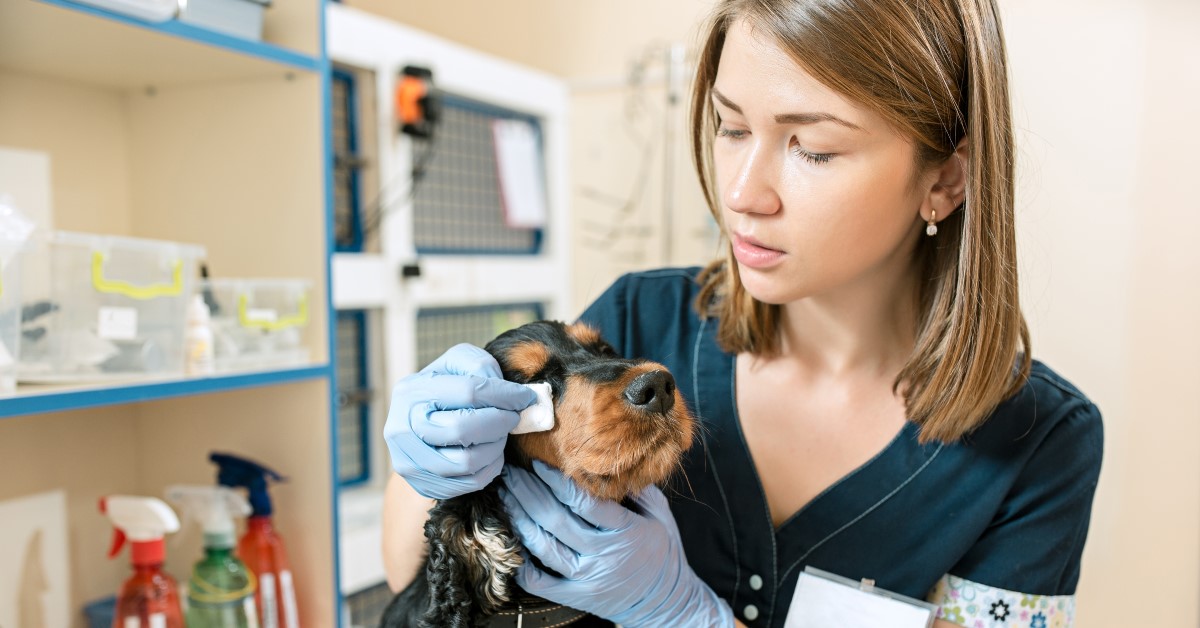How to Treat Allergic Reactions in Dogs
Understanding the proper treatment for allergic reactions in dogs is pivotal for overall health and wellness.

Seeing your dog suddenly become ill or irritated out of seemingly nowhere can be troubling for a pet owner. But, just like people, sometimes pets can have allergic reactions that cause irritations, redness, or more severe symptoms. Dogs can be allergic to several known allergens, but being able to treat your dog's allergic reaction can help keep your pet calm, safe, and comfortable.
What Can Cause an Allergic Reaction?
Unfortunately, sometimes determining the allergen in your home or environment that has caused an allergic reaction in your dog can be complicated. Allergens can be anything from a particular food to pollens that are only in the air at certain times of the year. Often, determining what has caused an allergic reaction in your dog is a process of elimination and observation. Be sure to monitor your pet closely, and observe any interactions or behaviors that may have preceded the reaction. Dogs can be allergic to foods, insect bites, medications, plants, smoke, dander, and just about everything in between.
Types of Reactions
Allergic reactions can vary between dogs and allergens, ranging from a simple runny nose to an emergency room visit to save your pet's life. Understanding different allergic reactions, and the allergens that cause them, can better help you treat and care for your pet.
Runny Nose and Eyes
Sometimes dogs experience only mild allergies that result in runny eyes or a runny nose. You may also notice your dog coughing, wheezing, or sounding congested. Just like people, pets experience environmental allergies, which can cause their sinuses to flare. Environmental allergies can be anything from changing pollens and spores in the air to smoke or fragrance in your home. Usually, a simple Benadryl treatment can be enough to ease awful days. Administer 1 mg of Benadryl for every pound your dog weighs. If seasonal allergies continue year after year, your veterinarian may prescribe allergy medication to help combat the toughest symptoms. These medications are often oral and given once or twice per day, depending on your pet's allergies.
Hives, Bumps, Rashes
Hives are a very common allergic reaction in dogs that can come from a dog coming in contact with an allergen, ingesting a toxin, or even being stung or bit by an insect. Further, hives can look painful and be highly itchy for your pet. Luckily, hives, rashes, and bumps are generally pretty easy to treat with over-the-counter medication. To help treat your pet's rash, bumps, or hives, simply dose Benadryl, available over-the-counter for humans. Usually, you'll want to give your dog 1 mg of Benadryl for every pound your dog weighs. A 20-pound dog would need about 20 mg of Benadryl. Monitor your pet for changes, and if symptoms do not improve, or worsen, be sure to contact your veterinarian.
Vomiting and Diarrhea
Allergic reactions that impact the digestive system are usually related to something your dog has ingested. A different food or treat could be making your pet have an allergic reaction, or your pet may have ingested a toxin. New medications can commonly cause this type of allergic reaction. Keep a close eye on your dog and ensure your pet does not become dehydrated from vomiting. If symptoms persist longer than 24 hours, seek immediate medical attention. It is essential to be aware that vomiting and diarrhea can occur if your pet is also experiencing anaphylaxis. Closely monitor your dog for accompanying symptoms that could indicate a more significant problem.
Swelling
An allergic reaction in your dog that leads to swelling can be severe, so careful observation is essential. While swelling is usually related to an insect bite or sting, it can also be connected to specific food allergies. Most commonly, you'll notice your dog's mouth, cheeks, and face swelling when an allergic reaction occurs. Swelling can also be a symptom of anaphylaxis, so it is essential to take this reaction seriously. In some cases, a simple dose of Benadryl may reduce swelling, but in severe cases, more vital medication is needed. A veterinarian will be able to administer Corticosteroids to help control and reduce swelling. If you notice your pet's face is beginning to swell, be sure to go to the veterinarian's office immediately for treatment.
Anaphylaxis
One of the most severe allergic reactions in pets is anaphylaxis. This condition causes the airways to swell, preventing your dog from breathing correctly. While allergic reactions this extreme can be sudden and unpredictable, usually anaphylaxis occurs when your dog comes in contact with a known allergen. Causes for this reaction can range from an insect sting to certain foods to different medications. In the event of anaphylaxis, your dog may exhibit trouble breathing, collapse, have a seizure, or start vomiting. Immediately take your dog to an emergency veterinarian for treatment. At an emergency room, a veterinarian can work to help stabilize and treat your pet.
Can Allergic Reactions Become Serious?
While most allergies are a simple annoyance, some conditions can make allergic reactions extremely serious. The most severe reaction is anaphylaxis, which can be unpredictable. This type of reaction requires immediate medical attention. Vomiting and diarrhea, especially if prolonged, can lead to dehydration which can create compounding medical complications. Even superficial scratching, itching, and biting can be dangerous if left untreated. Raw or irritated skin can be the perfect site for harmful bacteria to enter the body, causing infection. It is essential always to treat pet allergies seriously and understand the right time to administer treatment and contact a veterinarian.
Ready to start saving money on pet wellness care?
Then take a look at Mint Wellness, the pet wellness plan that provides fast reimbursement on routine pet care. Save on vaccinations, wellness exams, preventatives, dental, and more!
Learn More


